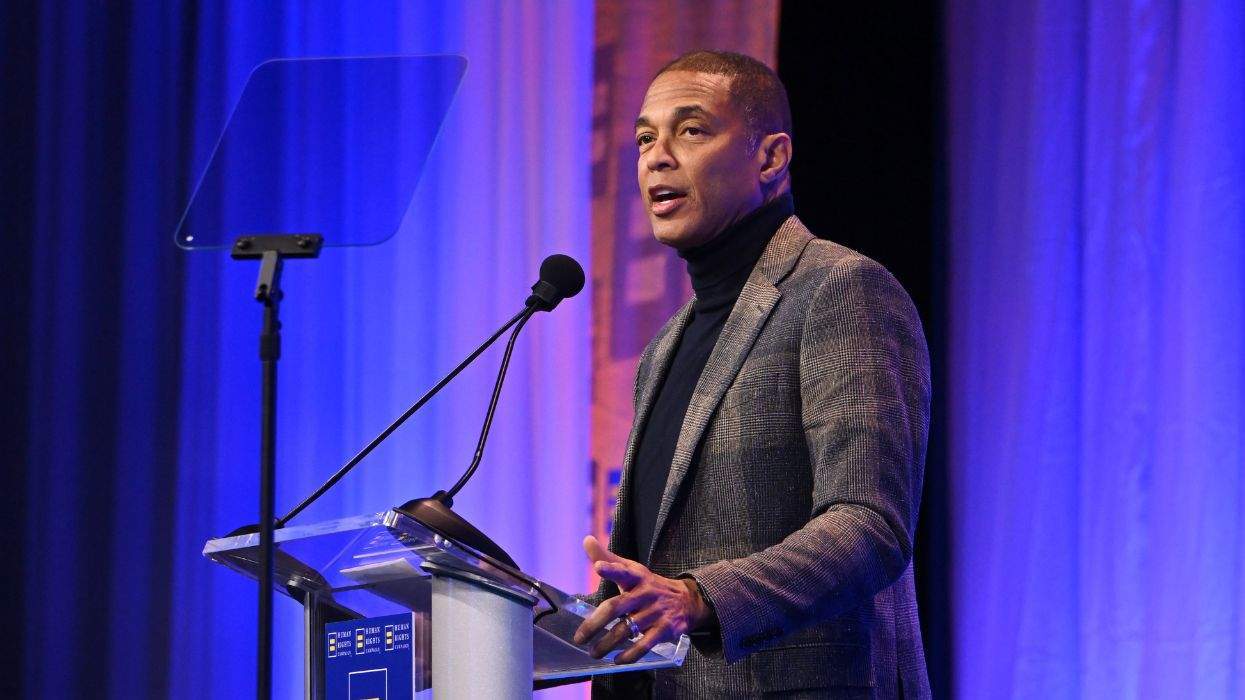The White House may make one last-ditch effort this year to push through the defense authorization bill that houses a "don't ask, don't tell" repeal measure during the period following the midterms.
White House deputy chief of staff Jim Messina met Monday evening with the chairman of the Senate Armed Services Committee, Sen. Carl Levin, to discuss moving the National Defense Authorization Act before the 111th Congress adjourns for the year.
"For the nearly hour-long meeting, a core portion of the discussion was the NDAA and 'don't ask, don't tell' and bringing them up during lame-duck," said a source familiar with the meeting.
A spokesperson for Levin, however, would not confirm the meeting.
The White House is beating back criticism for not being more engaged during last week's unsuccessful vote to advance the legislation before Congress recessed for the midterm election.
White House aides confirmed that Vice President Joseph Biden did make one call to GOP senator Susan Collins on the day of the critical vote, but the White House legislative affairs team did not have a visible presence on the Hill, according to multiple accounts from people who lobby on the issue and Capitol Hill staffers.
One Democratic Senate aide told The Advocate that neither President Barack Obama nor his top aides had any skin in the game prior to the vote.
"We were really looking for the president or the very senior members of the administration to be calling people regularly to push this, but the White House is not stepping up to the plate in any meaningful way on this," said the aide.
Since President Obama took office, White House aides and press secretary Robert Gibbs have consistently said that the administration favors a legislative path to overturning the 17-year-old policy barring gays and lesbians from serving openly in the military.
When asked about other avenues to ending the policy, Gibbs has faithfully reiterated the talking point that the president "continues to work with" Congress to achieve repeal, as he did during a briefing last week when he faced questions about the failed vote.
But the administration is fast approaching a scenario where the legislative route dead-ends after Democrats suffer potentially staggering losses in the midterms while the Justice Department continues to defend a law that is being repudiated by the courts.
One federal judge ruled the law unconstitutional earlier this month in Log Cabin Republicans v. United States of America, and another federal judge declared the discharge of a female service member unconstitutional last week in Witt v. Department of the Air Force, saying it violated her Fifth Amendment right to due process.
Fred Sainz, vice president of communications for the Human Rights Campaign, said the administration could soon find itself in "an untenable position."
"That's why they need to do everything they can to get it done this year," Sainz added.
A growing cadre of Congress members has signed on to a letter pressuring the administration not to appeal the decision in the Log Cabin case, including 69 House members and up to 15 senators, according to those familiar with the effort.
But thus far, President Obama has shown no appetite for instructing his Justice Department not to defend the law.
House speaker Nancy Pelosi acknowledged the administration's predicament last night following an event where she received an award from the Gay and Lesbian Victory Fund for her work on LGBT issues. During her speech, Pelosi reiterated her pledge to an adoring crowd that "'don't ask, don't tell' would "be gone by the end of the year."
"That will happen with or without Congress," she later told The Advocate. "We wanted to sort of put our imprimatur on it, but I don't think it has to depend on whether it passes the Senate. The process will work its way through, and the president will make his pronouncement on it."
Pelosi said that the DADT measure passed by the House and approved by the Senate Armed Services Committee ultimately left the authority to end the ban with the executive branch, noting it was "contingent" upon approval from the president, secretary of Defense, and chairman of the Joint Chiefs.
Asked if she would call on the president to issue a stop-loss or executive order to end the discharges, Pelosi said, "I think that is the unfolding that we will see. I myself, I'm pleased with the course that the president is on, but I think that we shouldn't be discharging people until that happens."
Obama's DADT Dilemma















Charlie Kirk DID say stoning gay people was the 'perfect law' — and these other heinous quotes
These are some of his worst comments about LGBTQ+ people made by Charlie Kirk.